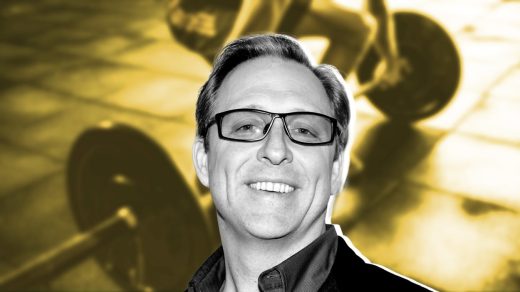Why Dave Asprey believes the future of fitness will involve a lot less exercise
The way Dave Asprey sees it, the future of the gym will involve spending far less time exercising.
Thanks to advances in technology, gym goers will spend 20 minutes per week on specialized machines, Asprey says—and those machines can replace hours of traditional cardio.
“We’re talking about really rapid transformation using technologies that are sometimes so startlingly effective that people don’t believe it,” says Asprey, who also appears in the newly released Fast Company docuseries, Future Me, with producer Emma Wheylin.
Asprey is among the most famous biohackers—that is, people who want to augment their bodies or brains by manipulating outside conditions. A simple example of biohacking: If you want to sleep better, you could make sure to get sun first thing in the morning and stay away from electronics before bed. Something more extreme would be spending $16,000 to attend a five-day long neurofeedback retreat that is supposed to retrain your brain to increase your IQ and creativity. He’s also the man who started the movement of putting butter in coffee, having created Bulletproof Coffee and the Bulletproof diet, which emphasizes proteins and fats and limits carbs.
The quick-paced in-and-out style of fitness is part of Asprey’s vision for Upgrade Labs, his gym/wellness center hybrid that he opened in 2017. He’s been building out the biohacking centers that have offerings such as cold therapy, lymphatic massages, and AI stationary bikes. He’s in the process of opening more than a dozen franchise locations.
“We’re just using the strongest possible things to give you the ability to transform your body,” says Asprey. “We call it a human upgrade center.”
Asprey has no medical degree, yet scores of people follow his teachings, turning to remedies such as cryotherapy or oxygen trainers to ease chronic illness, shape their physiques, and get more energy. There’s also not much data to back up many of the biohacking claims; or if there is, then it’s extremely limited. Physicians also generally wouldn’t recommend limiting your daily physical activity.
“I spent more than $10 million figuring out which pieces of technology create the most change in humans in the right order; also figuring out for a specific person, their age, their gender, or even the electrical capacity of their cells, for a specific goal. How do I use AI and data to guide them through to get exactly the best results?” Asprey says. “What we have now is the most data on people.”
He points out the company’s AI bike—claiming that five minutes on the machine, three times a week, equates to six times more cardiovascular performance than doing 45 minutes, five days a week, thanks to its ability to monitor heart rates and oxygen consumption.
“We don’t want you to spend time at Upgrade Labs, we want you to come in two times a week if you’re on a pretty good schedule,” he says. “But we want to minimize your time there, because you have better stuff to do on earth. Our job is to give you the upgrades that you’re looking for as fast as possible. It’s not about suffering. It’s not about working hard. It’s about just getting the results, and it’s been transformative.”
(26)



